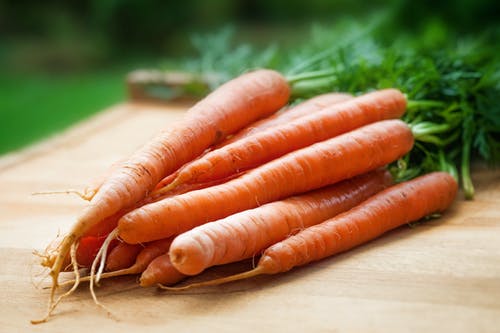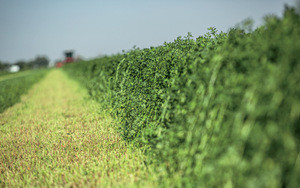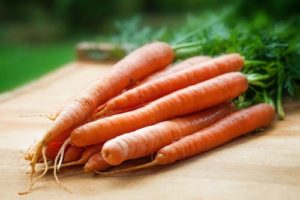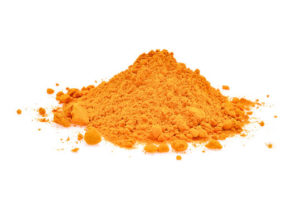
23 Feb 2021 Vitamin A for Horses – Best Resource Guide
Vitamin A is probably the most important vitamin for horses as it is crucial for growth, reproduction and development of a horse. Deficiencies can cause loss of vision, disturbances in bone growth and lowered resistance to disease and infection to name a few. Not only is the vitamin itself important, but it’s also crucial to evaluate the source of the supplement – natural or synthetic.
Short View
Benefits
- Necessary for growth
- Reproduction
- Proper development of a horse
Deficiencies
- Can cause loss of vision
- Disturbances in bone growth
- Low resistance to disease and infection
The Two Ways Horses get Vitamin A
1. Vitamin A can come from synthetic vitamin supplements
2. Vitamin A is produced naturally in the horse’s digestive system by turning beta-carotenes (found plentifully in grass and high quality alfalfa hays) into Vitamin A in their intestine.
 Horses grazing in good quality pastures during the growing season are easily receiving their full Vitamin A requirement (in the form of transformable beta-carotene).
Horses grazing in good quality pastures during the growing season are easily receiving their full Vitamin A requirement (in the form of transformable beta-carotene).
High quality green alfalfa hay is another great source to support the needs for Vitamin A in horses.
Vitamin A itself does not occur in plant products, but it’s precursor, carotenes are easily transformed into Vitamin A in the horse’s digestion.
Carotenes are abundantly found in green forages such as grass or alfalfa hay. Much of the carotene content is destroyed by oxidation during the production and curing of hay except for well made, early bloom alfalfa hay. So buying high quality hay is a must.
Vitamin A for Wintertime or Stabled Horses
If a horse however is kept mostly indoors and fed mainly grains, their food will have to be fortified with Vitamin A.
Studies have shown that horses may need 2 to 5 times the minimal amounts recommended by the National Research Council (NRC), depending on their age, activity, level of intake and environmental temperature.
Importantly, Vitamin A is fat soluble, which means horses are capable of storing Vitamin A in their body (the liver) to get them through winter when fresh forage is not abundantly available.

Too Much or Too Little Vitamin A
Beta-Carotene Vitamin A – Feeding above the recommended amounts of Vitamin A through beta-carotene is not harmful to horses. Studies show that horses fed too much supplemental beta-carotene simply convert less beta-carotene in their body to compensate.
Synthetic Vitamin A Supplements – Feeding above the recommended amounts of synthetic Vitamin A supplements can be toxic at a certain point to horses.
Synthetic Vitamin A vs. Beta-Carotene Sources

Over-supplementation of synthetic Vitamin A can be toxic and, to make things more complex, will present itself with similar symptoms as Vitamin A deficiencies.
A dull coat, slowed growth, and poor muscle tone are some of them. Severe toxicity shows as depression, ataxia and severe bone deformation.
However, there is no known toxicity of over-supplementing beta-carotene compared to over-supplementing with synthetic Vitamin A, as the horse naturally regulates the amount of carotene they convert into active Vitamin A.
So go ahead and feed your horse a few carrots during winter, but more importantly, make sure there is fresh green hay available.
